Online Public Lecture
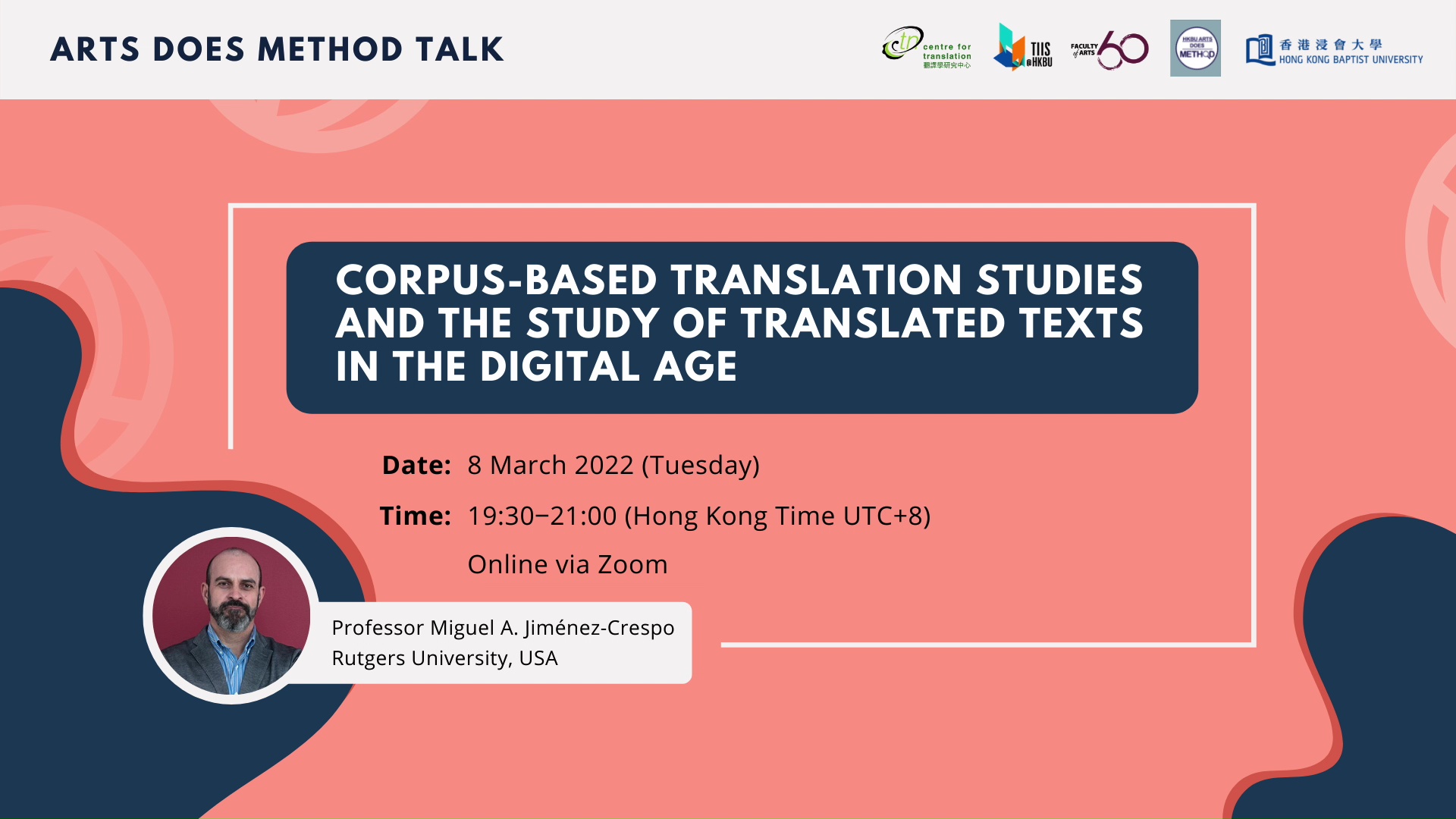
Corpus-based Translation Studies and the Study of Translated Texts in the Digital Age
2022 | 98 mins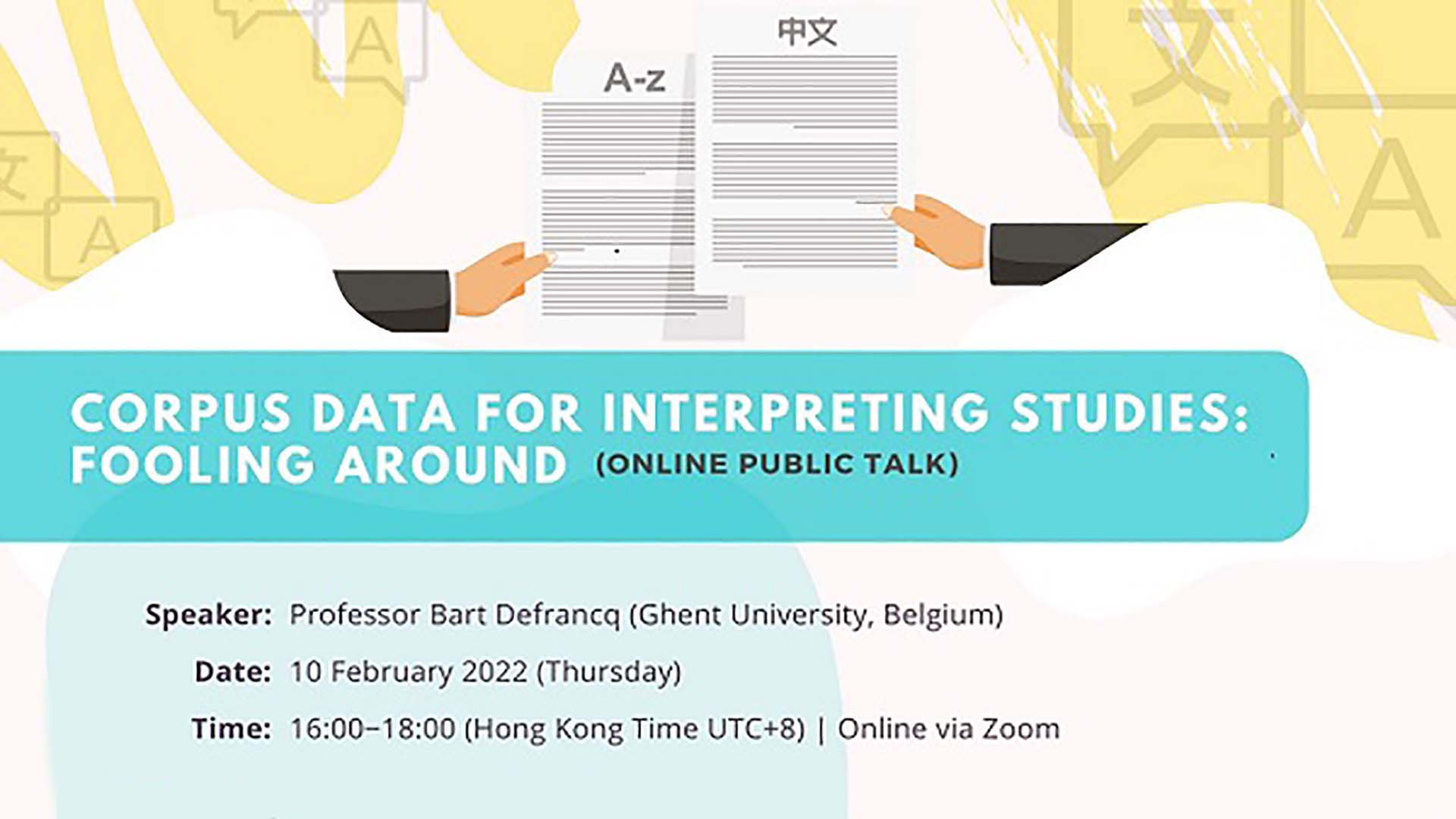
Corpus Data for Interpreting Studies: Fooling Around
2022 | 130 mins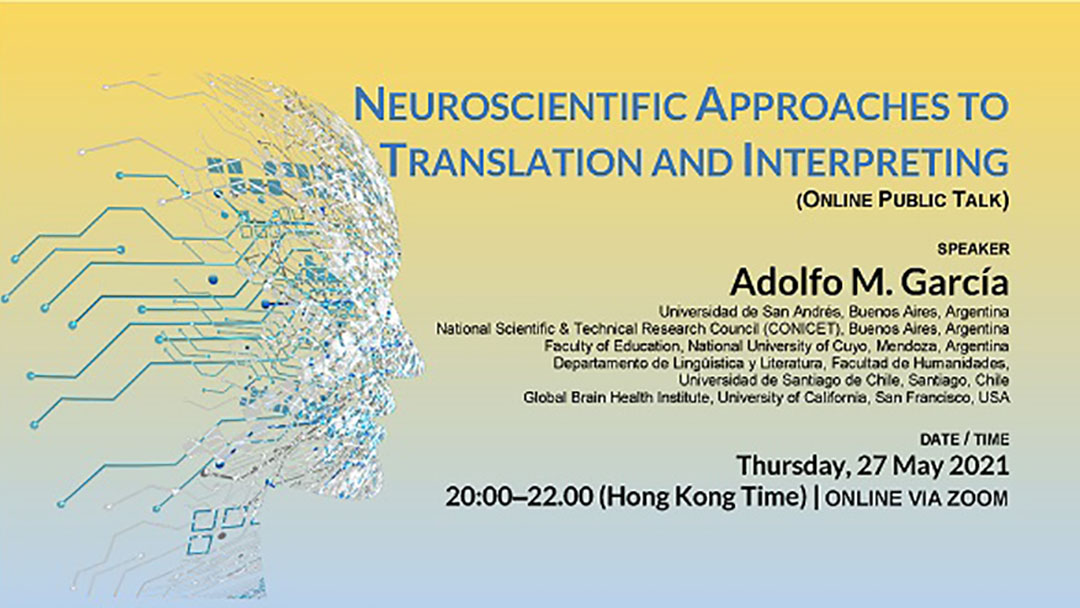
Neuroscientific Approaches to Translation and Interpreting
2021 | 136 mins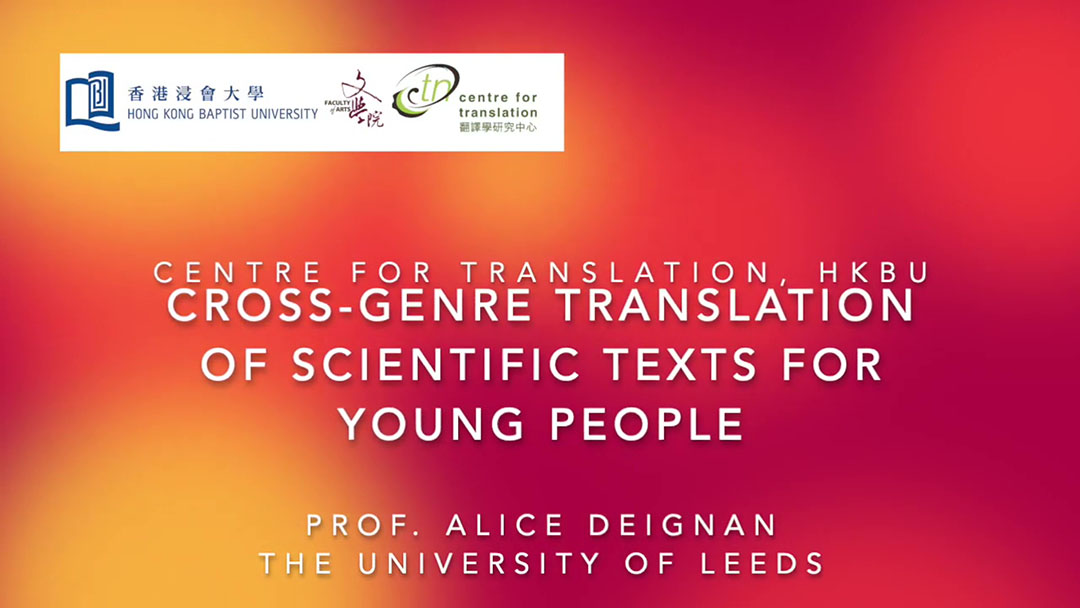
Cross-genre Translation of Scientific Texts for Young People
2020 | 109 mins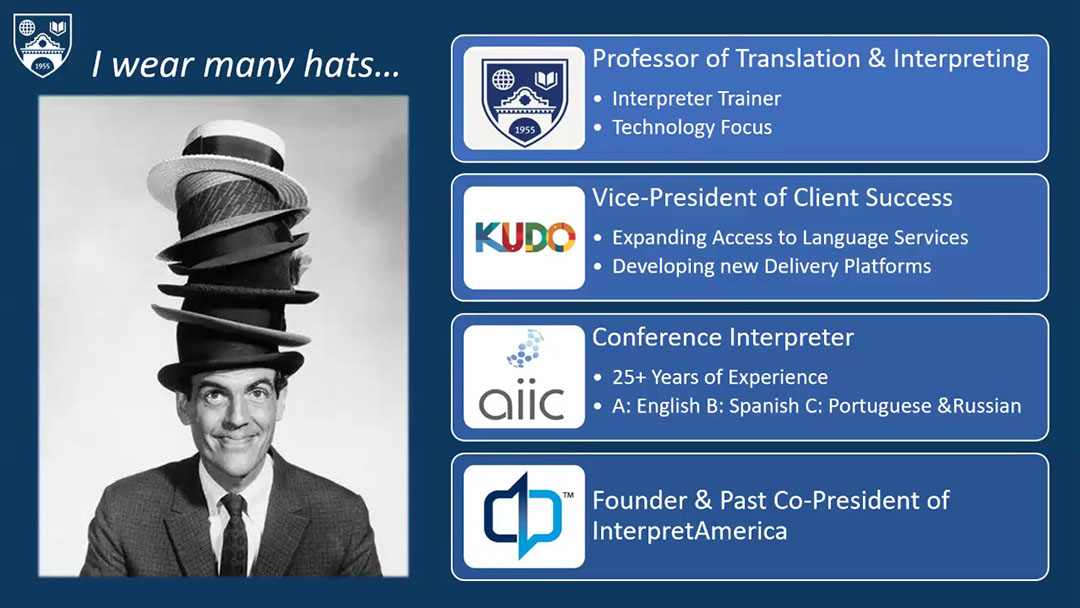
The Global Shift to Virtual Multilingual Meetings and Remote Simultaneous Interpretation: A Seminal Event for the Interpreting Profession or a Flash in the Pan?
2020 | 120 mins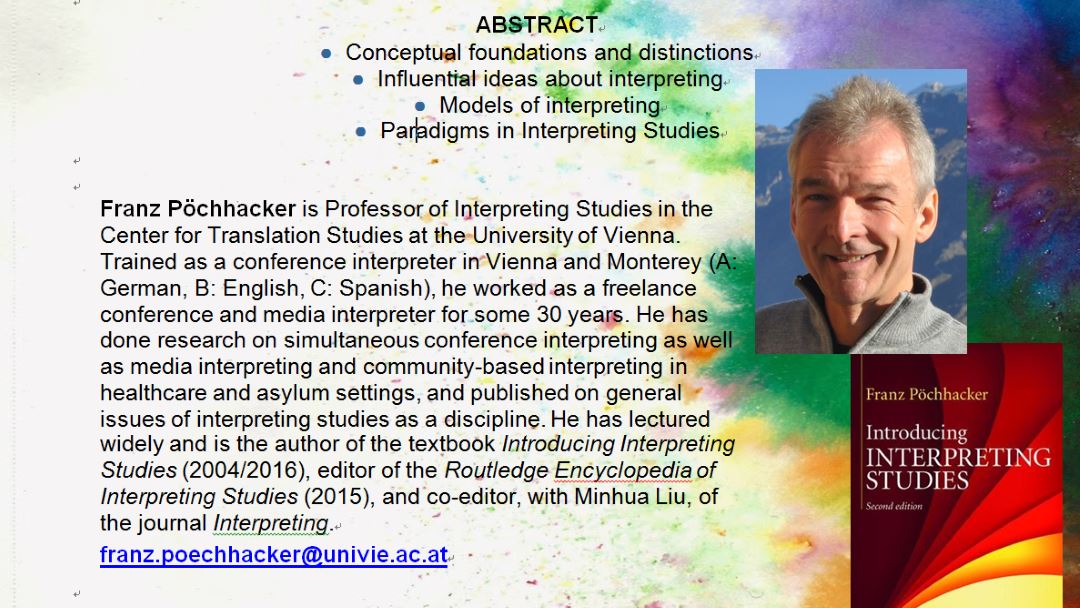
Introducing Interpreting Studies: Memes - Models - Paradigms
2020 | 187 mins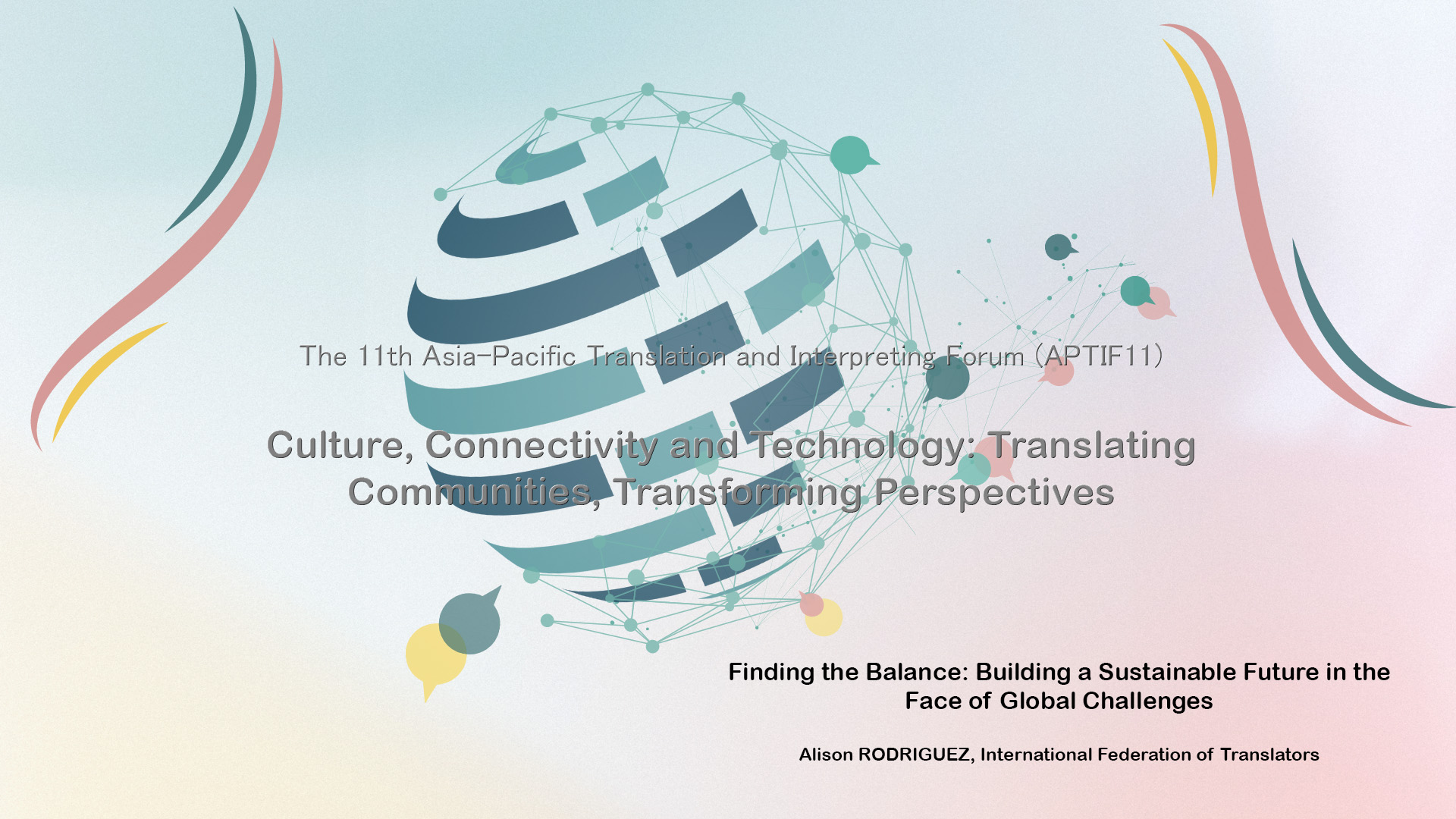
Finding the Balance: Building a Sustainable Future in the Face of Global Challenges
2025 | 38 mins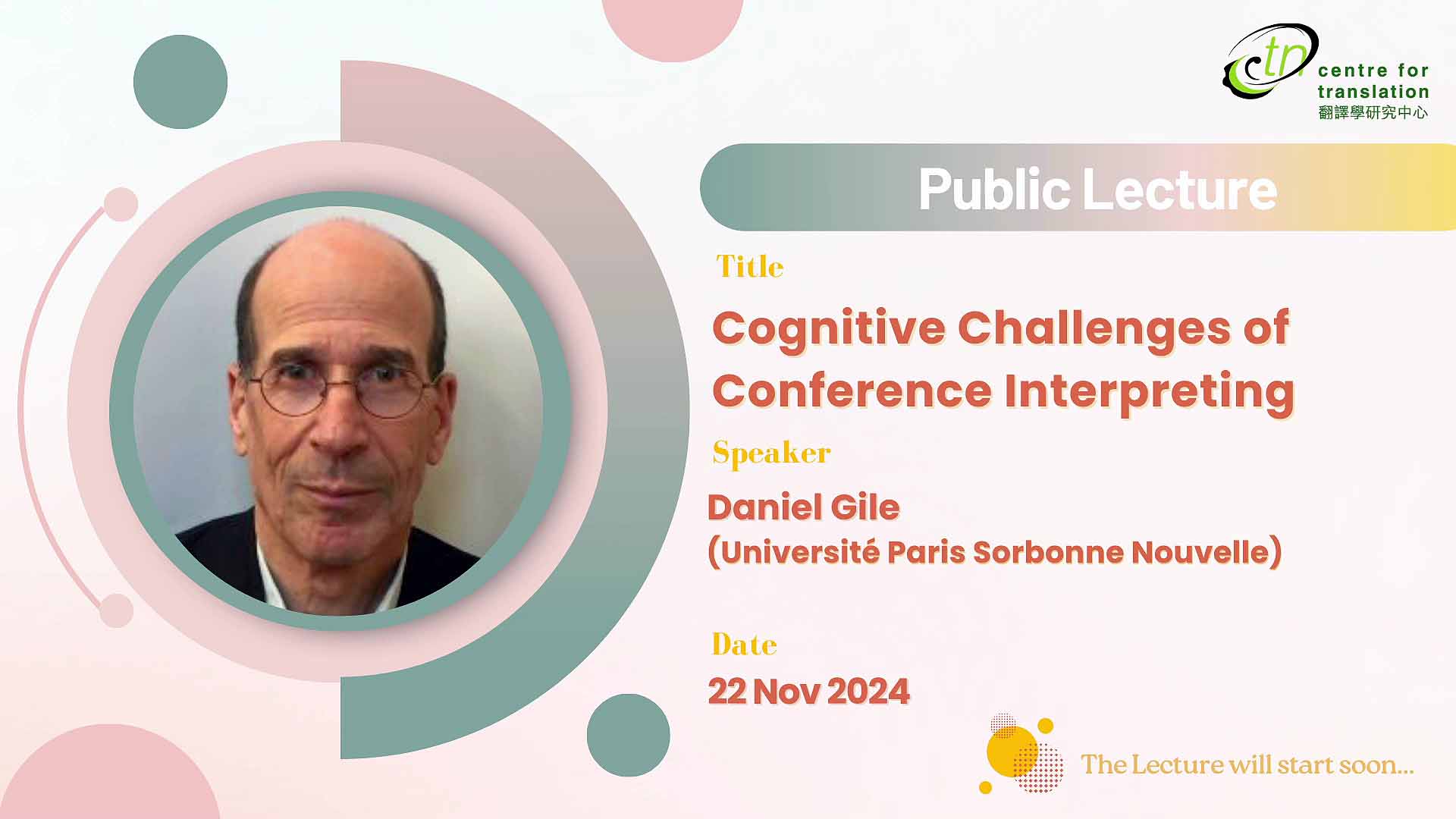
Cognitive Challenges of Conference Interpreting
2024 | 118 mins
Tom, Dick and Harry as Well as Fido and Puss in Boots are Translators: The Implications of Biosemiotics for Translation Studies
2024 | 86 mins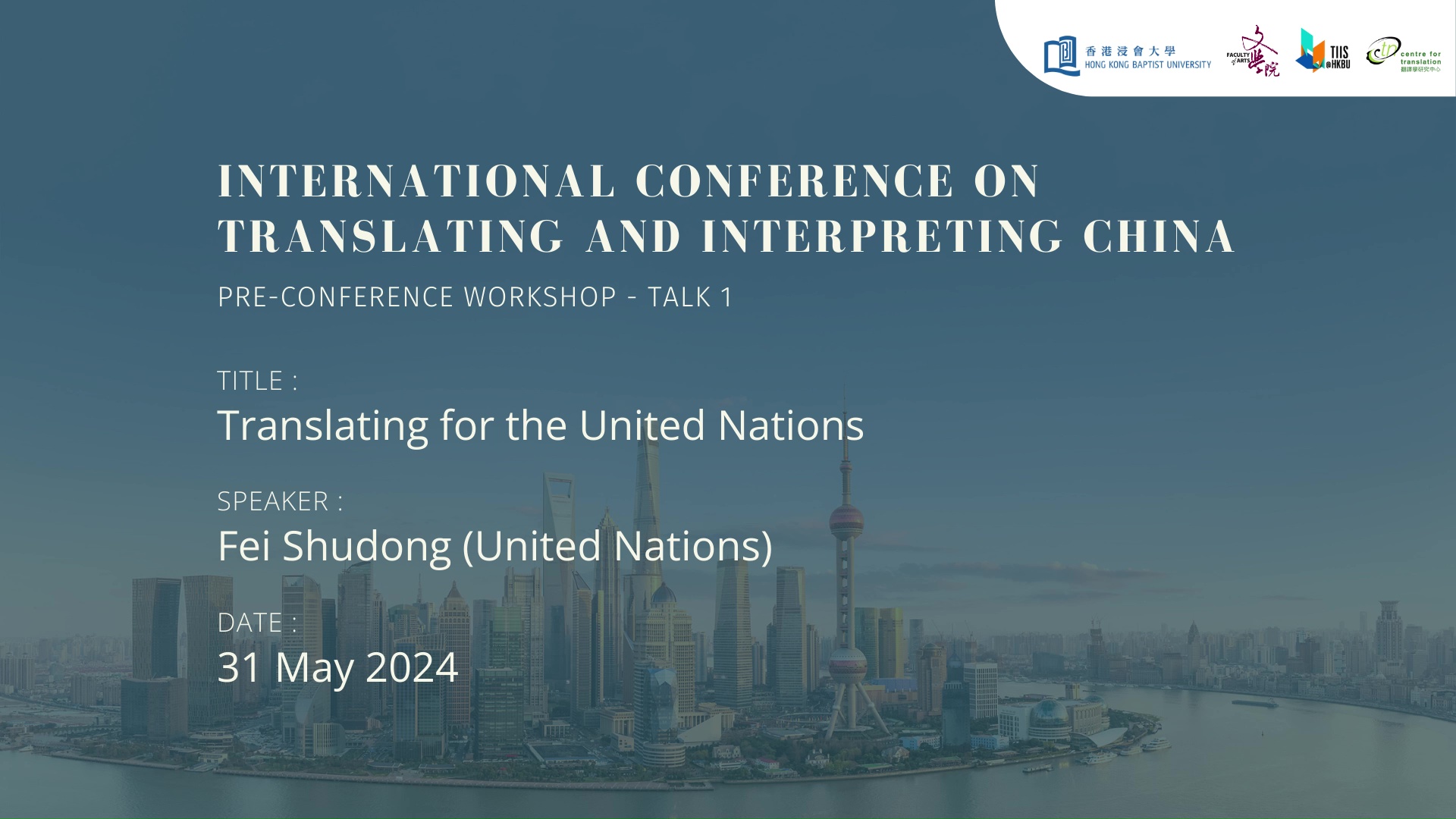
Translating for the United Nations
2024 | 28 mins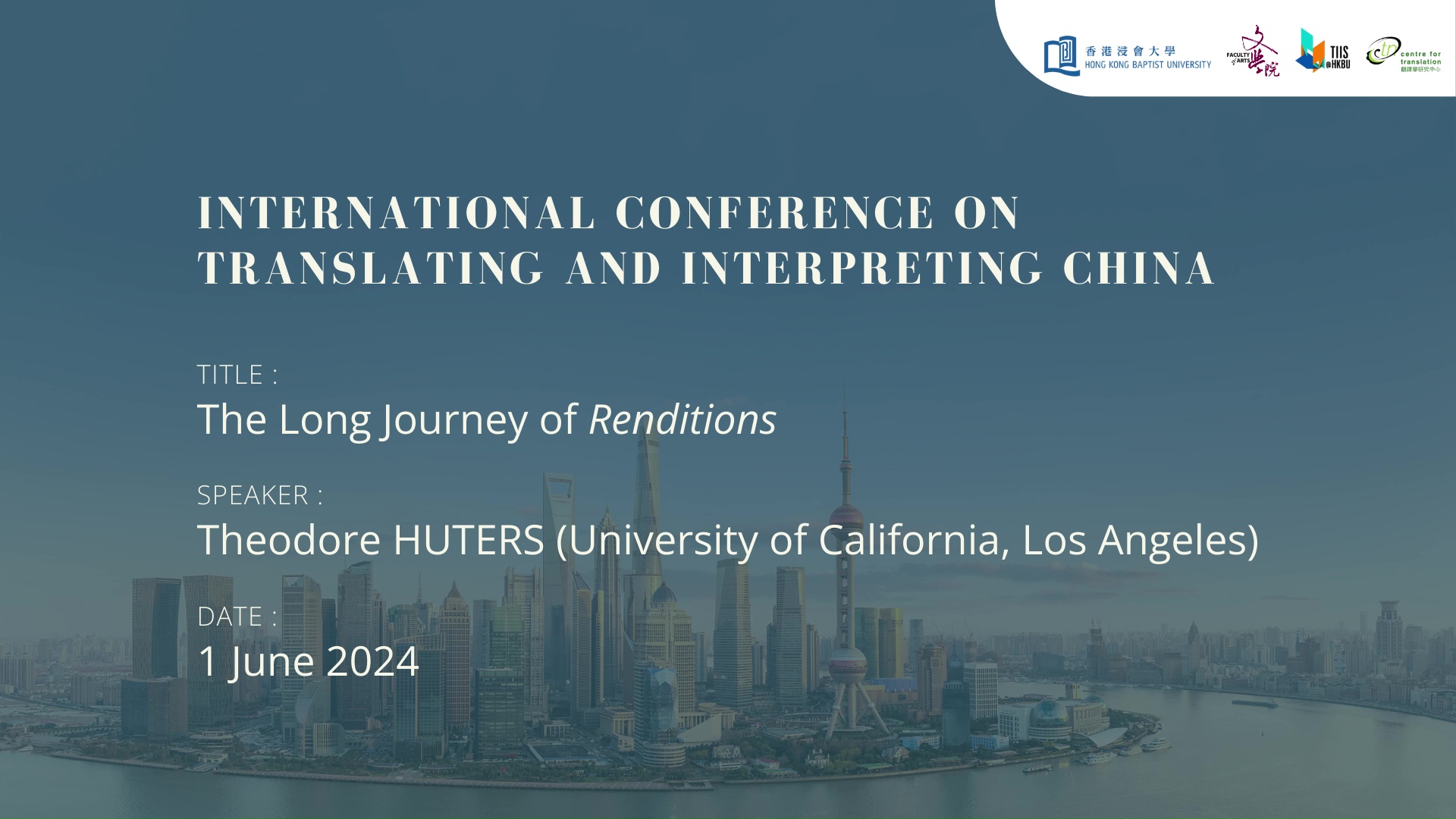
The Long Journey of Renditions
2024 | 25 mins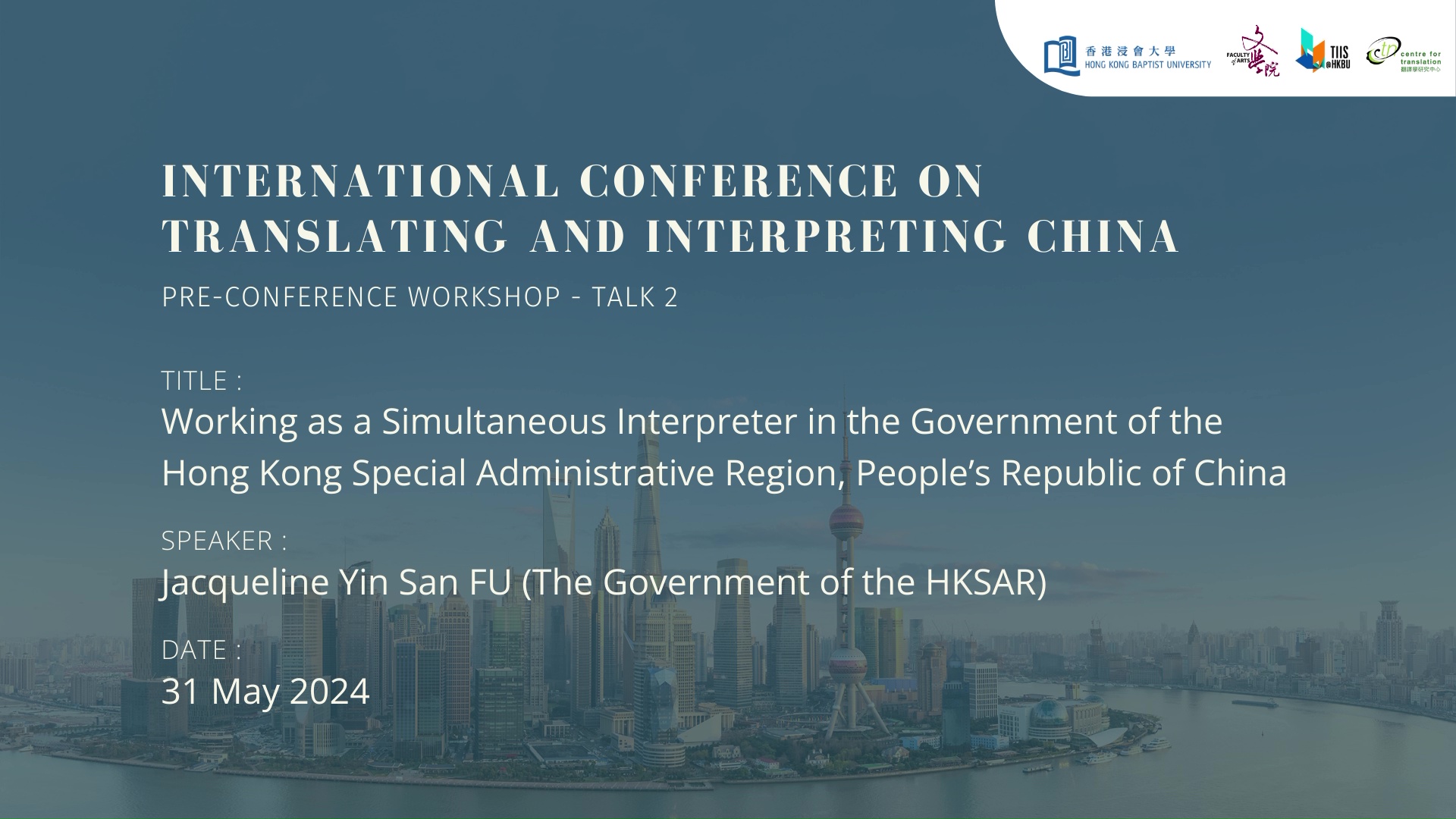
Working as a Simultaneous Interpreter in the Government of the Hong Kong Special Administrative Region, People's Republic of China
2024 | 36 mins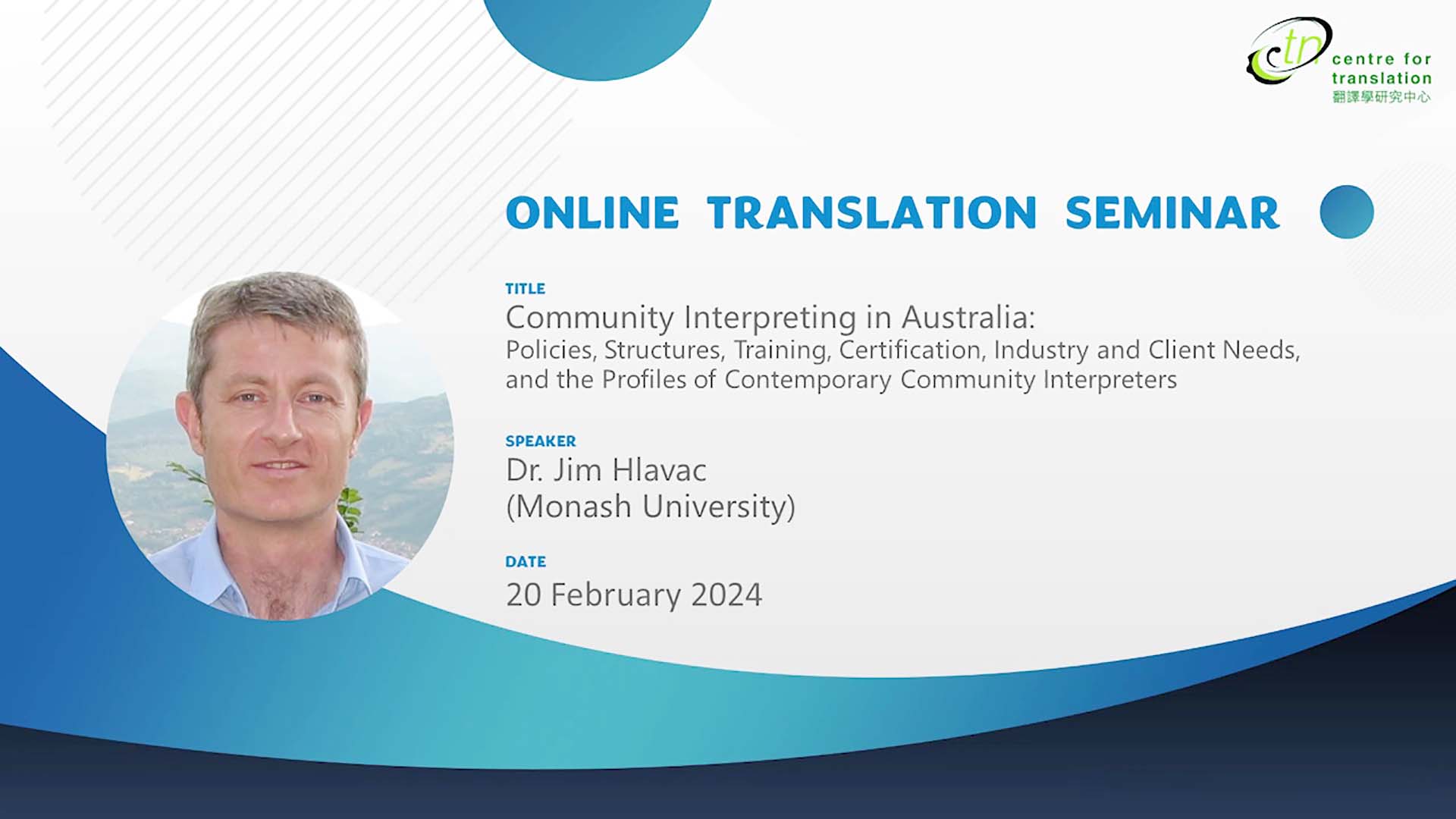
Community Interpreting in Australia: Policies, Structures, Training, Certification, Industry and Client Needs, and the Profiles of Contemporary Community Interpreters
2024 | 117 mins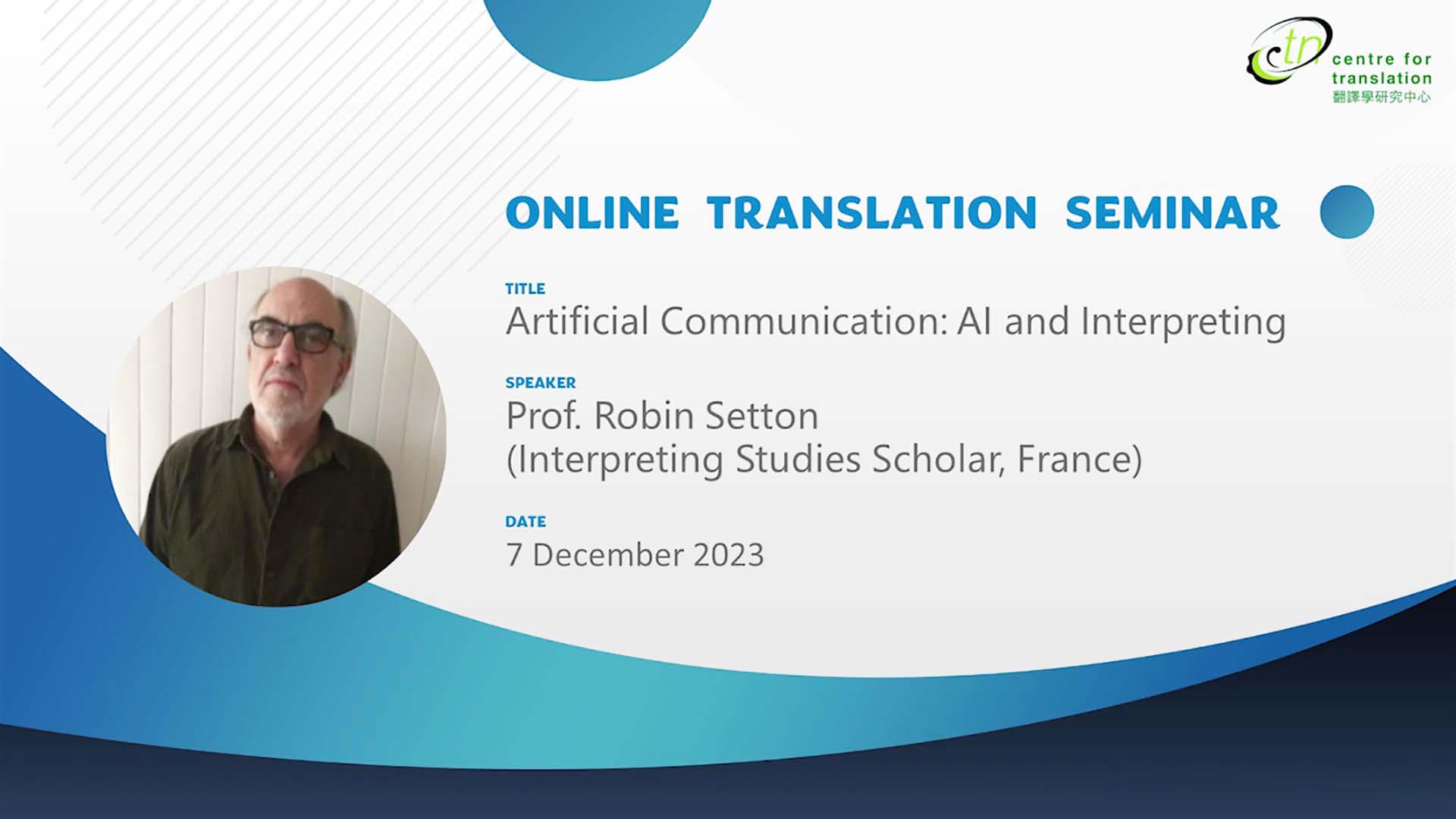
Artificial Communication: AI and Interpreting
2023 | 124 mins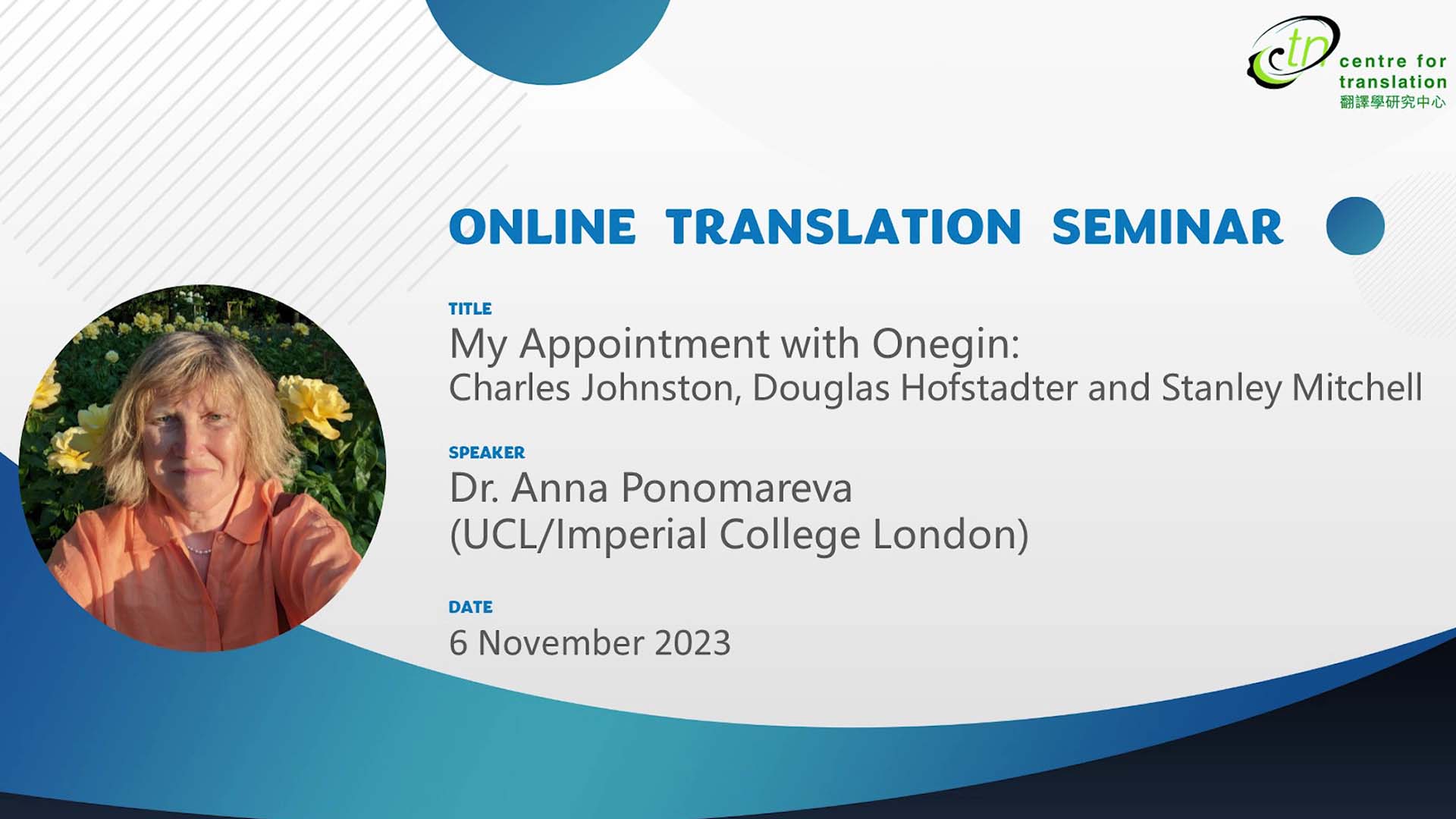
My Appointment with Onegin: Charles Johnston, Douglas Hofstadter and Stanley Mitchell
2023 | 60 mins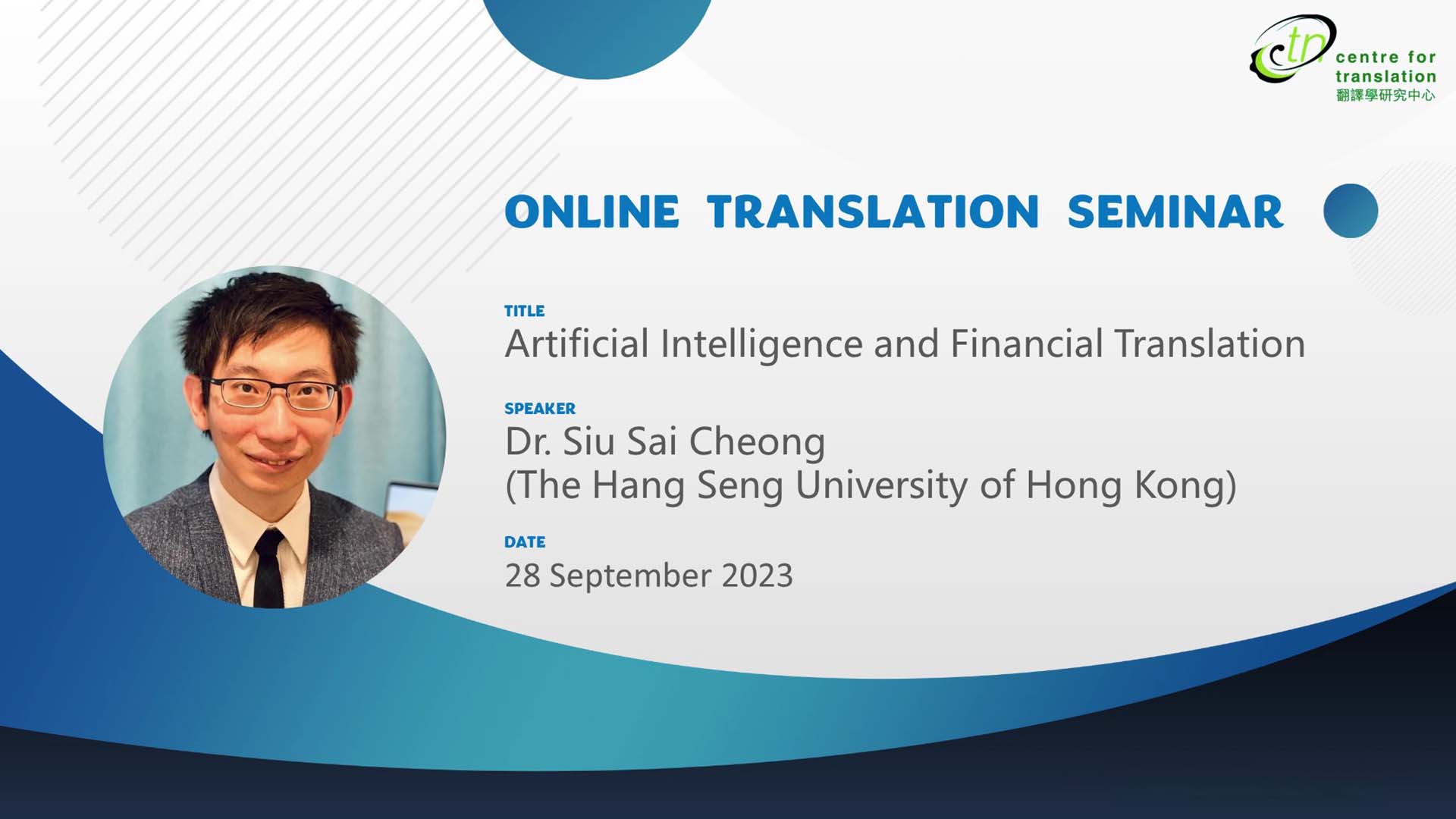
Artificial Intelligence and Financial Translation
2023 | 121 mins






